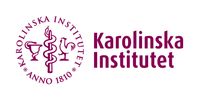Karolinska Institutet Inaugurates Research Centre in Hong Kong
[PRESS RELEASE 7 OCTOBER 2016] Today the Ming Wai Lau Centre for Reparative Medicine is being inaugurated in Hong Kong. The centre is Karolinska Institutet's first hub outside of Sweden. Researchers from around the world will be able to conduct research within regenerative medicine at the new facility with the goal of eventually being able to replace damaged or lost tissue.
By establishing this node in Hong Kong, Karolinska Institutet (KI) is strengthening its research within regenerative medicine.
”This is a natural step for KI, given our ambition of continuing to be a leading international university in medical research. Hong Kong is a global hub for research and innovation and provides unique opportunities for collaboration and knowledge exchange. By establishing this new centre, we hope to take a significant step forward in an area that can have important future implications for human health,” says Karin Dahlman-Wright, Karolinska Institutet's Acting Vice-Chancellor.
The Ming Wai Lau Centre for Reparative Medicine will consist of two nodes, one in Stockholm and one in Hong Kong. Under KI's leadership, the centre will conduct basic research using technologies that are relevant for regenerative medicine. One of the primary goals is to develop new knowledge and tools to repair damaged or lost tissue.
”We believe that people who are skilled in this area will be attracted by the new centre. Research today is all about partnerships, especially for newly established groups. Much of the best stem cell research today is being done in Asia, and KI wants to be a part of it,” says Ola Hermanson, scientific director of the new centre and researcher at KI's Department of Neuroscience. Hermanson is to lead six team leaders at the Stockholm node to work on topics relevant to the centre mission.
The centre has been fully funded through a donation from the Hong Kong-based businessman Ming Wai Lau. The research projects in Lau Centre range from biomedical engineering, gene-editing, RNA technology, to the next-generation single-cell analysis/bioinformatics for the advanced development and translation of the specialty areas of stem cell-based regeneration of the heart, liver and nervous systems.
Ronald Li, whose expertise is in cell-based heart regeneration, serves as the executive director based at the centre located in the Hong Kong Science Park. International recruitment of four team leaders, along with 50 staff, is close to completion or in progress.
Hermanson and Li have been working closely together, and will ensure that the two nodes synergistically interact.
”I have deep belief in the impact that stem cell research will bring to the medical field and the human race as a whole. Hong Kong is equipped with all the favourable conditions to become a regional hub in this highly specialised area and I take great pride in supporting this meaningful initiative,” says Lau Ming Wai, donor of the new centre. 'The establishment of this centre in Science Park will provide the intended practitioners in Hong Kong a springboard to take their research projects to the world stage in reparative medicine.”
Contacts
Contact the Press Office and download photos: ki.se/pressroom
Karolinska Institutet (http://ki.se/english) is one of the world's leading medical universities. Its vision is to significantly contribute to the improvement of human health. Karolinska Institutet accounts for over 40 per cent of the medical academic research conducted in Sweden and offers the country´s broadest range of education in medicine and health sciences. The Nobel Assembly at Karolinska Institutet selects the Nobel laureates in Physiology or Medicine.
Subscribe to releases from Karolinska Institutet - English
Subscribe to all the latest releases from Karolinska Institutet - English by registering your e-mail address below. You can unsubscribe at any time.
Latest releases from Karolinska Institutet - English
New method reveals how the brain and inner ear are formed3.4.2025 20:00:00 CEST | Pressmeddelande
Researchers at Karolinska Institutet have developed a method that shows how the nervous system and sensory organs are formed in an embryo. By labelling stem cells with a genetic ‘barcode’, they have been able to follow the cells’ developmental journey and discover how the inner ear is formed in mice. The discovery, published in Science, could provide important insights for future treatment of hearing loss.
Fluoride in drinking water is associated with impaired childhood cognition7.3.2025 15:30:00 CET | Pressmeddelande
Elevated concentrations of fluoride can occur in well water, and in some countries, it is added to drinking water to counteract caries in the population. A study from Karolinska Institutet in Sweden now supports a few previous studies indicating that exposure to fluoride during the fetal stage or early childhood may impair cognition in children. The study is published in the journal Environmental Health Perspectives.
Children with ARFID face increased risk of disease17.2.2025 17:00:00 CET | Pressmeddelande
Children with avoidant restrictive food intake disorder (ARFID) have an elevated risk of developing psychiatric and physical conditions, a new study from Karolinska Institutet published in JAMA Pediatrics reports. The study highlights the importance of early identification to improve care of these children.
Preterm babies receive insufficient pain management27.1.2025 15:29:17 CET | Pressmeddelande
A large proportion of babies born very early need intensive care, which can be painful. But the healthcare system fails to provide pain relief to the full extent. This is shown by the largest survey to date of pain in neonatal care, now published in the journal Pain.
New study paves way for immunotherapies tailored for childhood cancers20.1.2025 17:00:00 CET | Pressmeddelande
Researchers at Karolinska Institutet and the Astrid Lindgren Children’s Hospital in Sweden have determined how children’s immune systems react to different kinds of cancer depending on their age. The study, which is published in the journal Cell, reveals significant differences between the immune response of children and adults, and has the potential to lead to new tailored treatments for children with cancer.
In our pressroom you can read all our latest releases, find our press contacts, images, documents and other relevant information about us.
Visit our pressroom